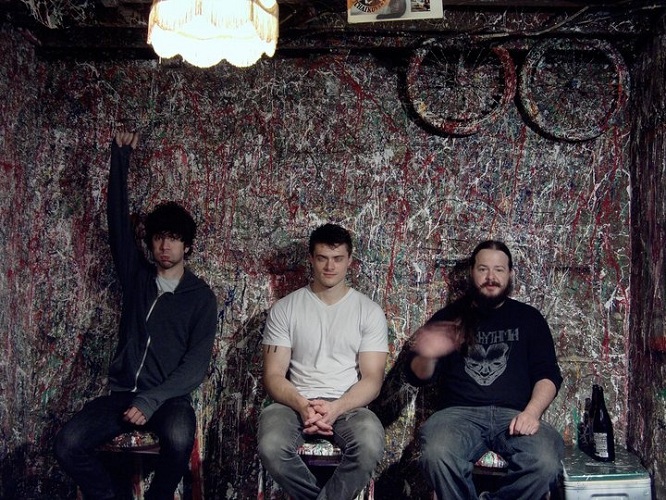
Don Caballero Discography Download
Some people start bands because they feel they have something to say. Others see band formation as a guaranteed path to free drinks and unprotected sex. When Damon Che formed instrumental crunch-rockers Don Caballero 15 years ago in Pittsburgh, Pennsylvania, he had significantly different plans.
World Class Listening Problem 7. Railroad Cancellation 8. Theme From Bricktop Clowns 9. Savage Composition 10. I'm Goofballs For Bozzo Jazz The legendary Don Caballero have re-emerged! Inarguably one of the most celebrated, influential, and innovative bands in recent times, Don Caballero is the vanguard of progressive instrumental music. Don Cab released their first 4 albums on Touch & Go ('For Respect', 'Don Caballero 2', 'What Burns Never Returns', 'American Don'), and the latter two albums.
“The only plan we had at the time was to come up with music we liked,” he says earnestly. “The reason we ended up the way we did was because, in our estimation, [the music] wasn’t ready yet. The opportunities to record kept coming up, and we didn’t want to waste them, even if we didn’t have our craft entirely up to specifications yet.” Che might have had reservations about the preparedness of the music, but nobody was really prepared for the kind of efficient instrumental urgency DonCab generated. Mike Banfield’s crunching guitar riffage and Pat Morris’ bass underpinned everything so that Che’s indefatigable complexityi.e., drums as lead instrumentwas front and center. The band was instrumental by default, wielding a technical proficiency that could rival the staunchest prog outfit, but instead choosing to deliver a far more visceral impact.
Of course, like most things genuine and exemplary, DonCab were greeted by blank stares and confused looks similar to the ones a dog makes eating peanut butter. An early supporter pleaded them to participate in a city battle-of-the-bands contest. When the leader of the judging “panel of experts” heard two minutes of the band’s first single, he lifted the needle and said, “These guys need to go back to Songwriting 101.” Fortunately, Songwriting 101 got brushed aside so DonCab could expand to a quartet, adding guitarist Ian Williams; sign to the Touch And Go label; and head off to Chicago to record their 1993 debut album, For Respect, with Steve Albini at the controls. Many a fanzine writer and alt-weekly-residing tastemaker began describing the band’s complexities and Che’s rhythmic prowess as “math rock,” a term that, to this day, sits uneasy with the drummer. “I think we got to much credit for those particular aspects of the band,” he reflects. “We did have many twists and turns and hard-to-follow time signatures. But we were a much more simplistic mechanism compared to great bands like Breadwinner or Confessor.
Much respect to themI hope they’re not mad about it!”. The next 10 years saw the band generate an admirable body of work in the form of three additional albums (Don Caballero 2, What Burns Never Returns and American Don) and a singles compilation (Singles Breaking Up, Volume One), along with a series of bassists and the resignation of original member Banfield. And while the band were collecting their hard-earned share of accolades from indie rockers and headbangers alike, the creative friction between Che and Williams had escalated to reactor-melting proportions.
 At that point, we couldn’t see eye-to-eye on anything,” says Che. “Ian and I are like natural-born enemies, like a cobra to a mongoose. People think that’s harsh for me to say.
At that point, we couldn’t see eye-to-eye on anything,” says Che. “Ian and I are like natural-born enemies, like a cobra to a mongoose. People think that’s harsh for me to say.
On a humanitarian level, Ian is, obviously, not my enemy. But on an artistic level, you’re godamn right he is. Looking back, it was kind of a miracle that we actually accomplished all that we did together.” While Che can listen to previous DonCab recordings without reaching a cringe factor, he is upfront about what exactly went into those proceedings: “In my opinion, those records are a product of one person getting their way, the other getting theirs, and the entire process getting deflated by a lot of boring compromise.” By the fall of 2001, Che and Williams decided that DonCab belonged to the history books, and the band fragmented. Immediately following the split, Che kept himself busy. He signed on as bassist for Matador Records act Chavez for a brief tour; explored his guitar playing and songwriting in his side project, Thee Speaking Canaries; and got behind the drums in Bellini, an outfit he formed with former Uzeda guitarist Agostino Tilotta.

Yet through all of these playing situations, Che felt that Don Caballero wasn’t finished. In 2001, he made the acquaintance of bassist Jason Jouver and guitarists Gene Doyle and Jeff Ellsworth, members of Creta Bourzia, a Pittsburgh-based angular rock unit who were long on musical talent and short on ego-tripping. The trio bonded with Che over music and aesthetics, and a friendship based in music was born. (Che played bass on a Creta Bourzia tour; Doyle manned the drums for some Speaking Canaries gigs.) Che broached the prospect of reactivating DonCab with them.